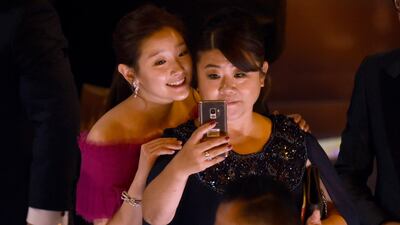OPINION: The Academy Awards is far from a start-up.
It’s in its 92nd year, and is surely a well-oiled machine as ‘the biggest night in entertainment’: and so I find it hard to believe that bloopers keep accidentally happening.
I think, rather, the organisers are seeking viral gold for its four-hour-long awards show in the era of the 15-second Tik Tok.
In 2013, Jennifer Lawrence stumbled while walking up on stage; and in 2014, John Travolta famously garbled Idina Menzel’s name (although I think that was unplanned).
In 2017, La La Land was, horrifically, named best picture, before it was revealed that it was actually Moonlight. And then, in 2019, Rami Malek fell off the stage after accepting best actor (that stage must be mighty slippery).
And then this year, as Parasite won Best Picture, making it the first foreign language to ever do so, a big moment, the lights went dark abruptly, about one minute into their speech.
They were left in the dark just after producer Kwak Sin-ae had touchingly called this “an opportune moment in history”.
There was no queue music, no warning, only a blackout, with the camera cutting straight to an unprepared Jane Fonda (who had presented the award).
Almost immediately, the crowd began roaring 'up, up, up', in regard to the lights, and indeed, the lights turned back on, and so Parasite got more time under the Oscars sun.
At the moment the lights went out, the Parasite producers had spoken for far less time than Joaquin Phoenix (who talked about veganism and was on stage chatting for more than three minutes), so it must have been a 'mistake' rather than the actual cut off time.
But was it a genuine blunder? Or another way to keep the Oscars trending on Twitter? I am beginning to suspect the latter. It seems organisers are willing to look bad to gain traction.
It can't all be about social media, however, as the compulsion to shock was apparent at the Academy Awards a decade before Mark Zuckerberg was even a twinkle in one's eye.
In 1974, conceptual artist and activist Robert Opel streaked across the stage at the Oscars. It was the most talked about moment of the 46th Academy Awards, and now, with the benefit of hindsight, is widely believed to have been planned
The reason people think it was an Oscars-approved stunt is because the one-liner response by David Niven is thought to have been pre-written and teleprompted.
He said: “But isn’t it fascinating to think that probably the only laugh that man will ever get in his life is by stripping off and showing his shortcomings?”
People go on about forced fun, but surely what’s worse is insincere shock?
At least, it seems, the lights out moment during Parasite's big acceptance speech wasn't sponsored-content, a la Ellen's Samsung selfie. But, who knows, some behemoth electricity company could still be about to step in with a 30-second Twitter ad claiming they saved the day.

